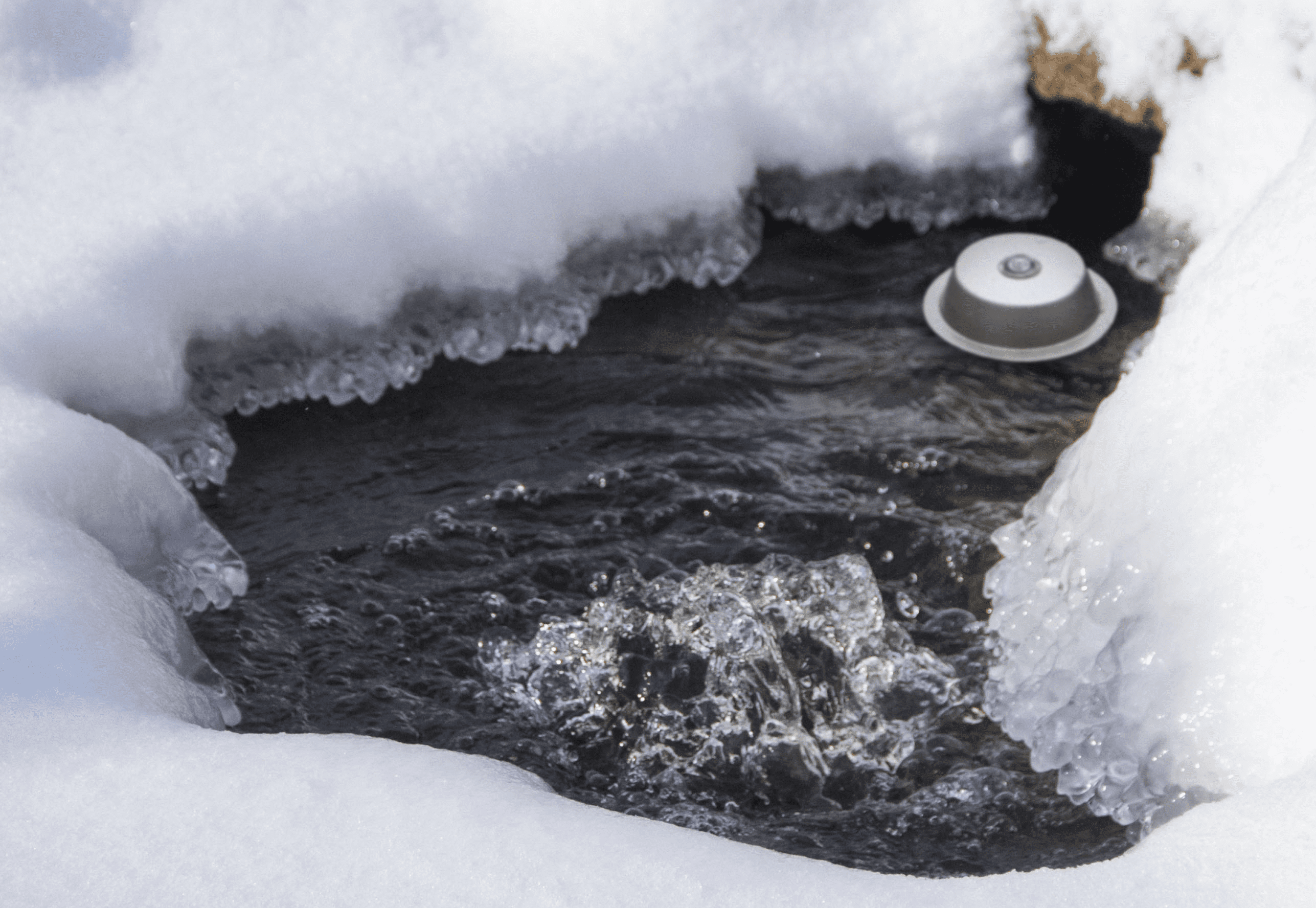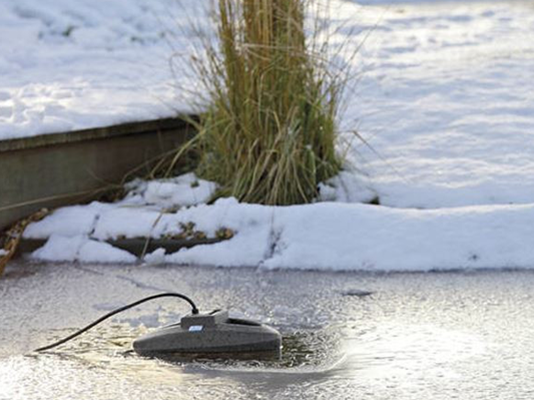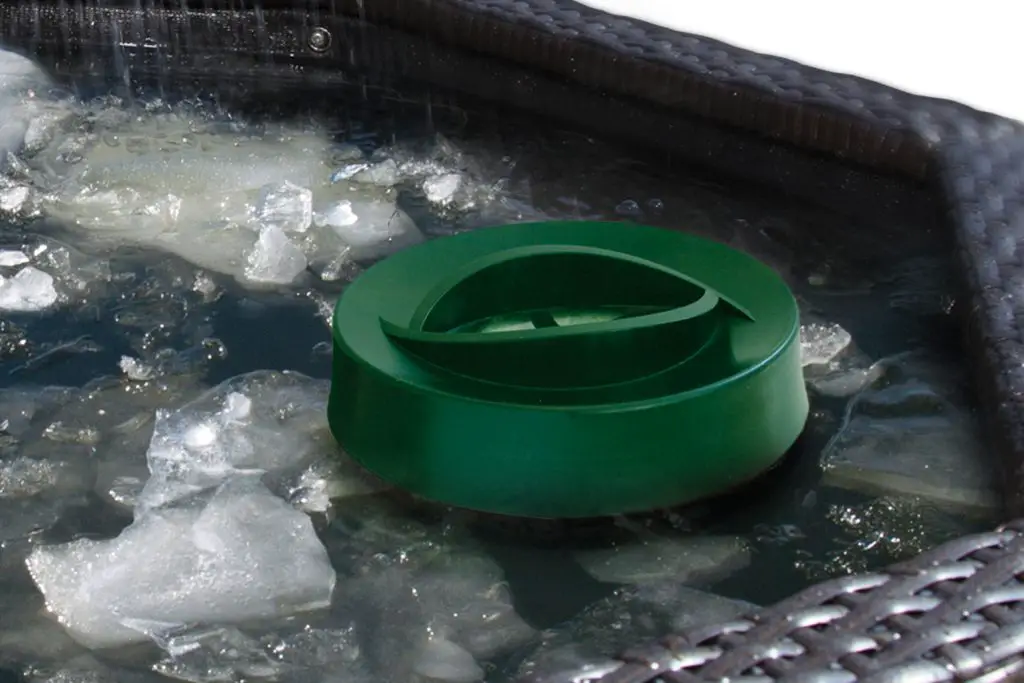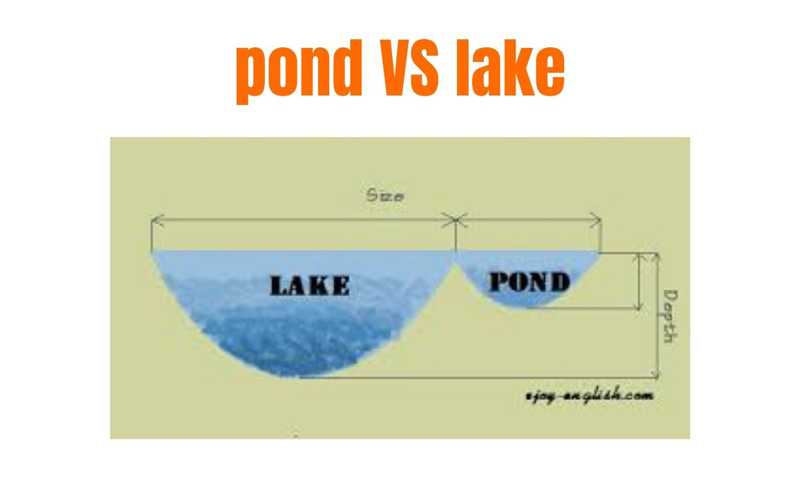Keeping your pond from freezing during the winter months is crucial to ensure the health and well-being of your fish and plants. When the temperature drops, the water in your pond can freeze, posing a threat to the aquatic life within. In this blog post, we will discuss various methods you can use to prevent your pond from freezing.
1. Install a Pond Heater
One of the most effective ways to keep your pond from freezing is by installing a pond heater. Pond heaters are designed to maintain a hole in the ice, allowing for proper gas exchange to occur and preventing the buildup of harmful gases under the ice. This can help keep your fish and plants healthy throughout the winter.

Credit: splashsupplyco.com
2. Use a De-Icer
A de-icer is another great option for keeping your pond from freezing. De-icers are floating devices that keep a small area of the pond ice-free, allowing for oxygen exchange and preventing the pond from completely freezing over. De-icers are energy-efficient and easy to install, making them a popular choice among pond owners.
3. Circulate the Water
Another effective method to prevent your pond from freezing is by keeping the water moving. By installing a pond pump or aerator, you can create water movement that helps prevent ice from forming on the surface. Moving water is less likely to freeze, making this a simple yet efficient way to protect your pond during the winter.
4. Add a Pond Cover
Using a pond cover can also help keep your pond from freezing. A pond cover acts as an insulating barrier, trapping heat and preventing the water from freezing as quickly. Make sure the cover is properly secured to prevent it from blowing away in strong winds, as this could expose your pond to freezing temperatures.
5. Increase the Depth of Your Pond
If you have the option, increasing the depth of your pond can help prevent it from freezing completely. Deeper water is less likely to freeze all the way through, providing a refuge for your fish and plants during the winter months. Consider deepening your pond before the cold weather sets in to ensure its effectiveness.
6. Use Insulating Materials
Insulating materials can also help keep your pond from freezing. Adding a layer of straw, foam insulation, or even a floating blanket on the surface of the water can provide an extra layer of protection against freezing temperatures. These materials help retain heat and prevent the water from turning into ice.
7. Remove Snow Regularly
During the winter, it’s important to remove any snow that accumulates on the surface of your pond. A thick layer of snow can insulate the water, preventing it from receiving warmth from the sun and causing it to freeze more quickly. Use a snow shovel or broom to clear off the snow regularly to help maintain the health of your pond.
8. Monitor Water Temperature
Regularly monitoring the water temperature in your pond is essential to ensure it doesn’t freeze over completely. Invest in a pond thermometer to keep track of the temperature and take action if it starts to drop dangerously low. Being proactive in monitoring the water temperature can help you implement preventive measures before it’s too late.

Credit: www.swelluk.com
9. Provide Shelter for Fish
Creating shelters for your fish can also help protect them from freezing temperatures. Add structures like rocks, caves, or plants where your fish can seek refuge when the water gets too cold. These shelters provide a safe haven for your fish during the winter and help them survive the harsh conditions.
10. Consider Moving Fish Indoors
If you’re concerned about your fish surviving the winter in your pond, consider moving them indoors to a tank or aquarium. Indoor tanks can be controlled for temperature, ensuring your fish stay warm and healthy throughout the winter months. This is a great option for more delicate fish species that may not tolerate cold temperatures well.
By following these tips and methods, you can effectively keep your pond from freezing during the winter months and protect the aquatic life within. Remember to plan ahead and take proactive measures to ensure the health and well-being of your pond during the colder seasons.


